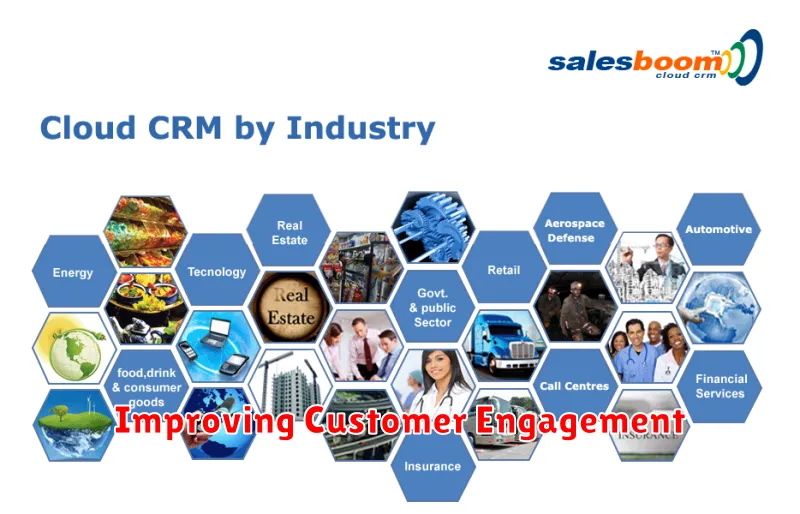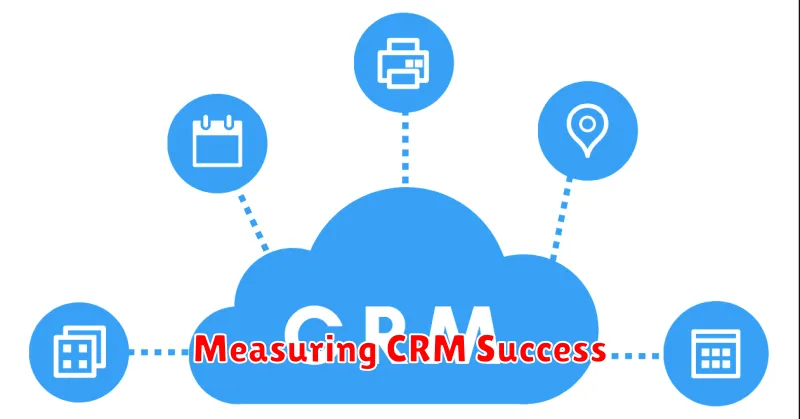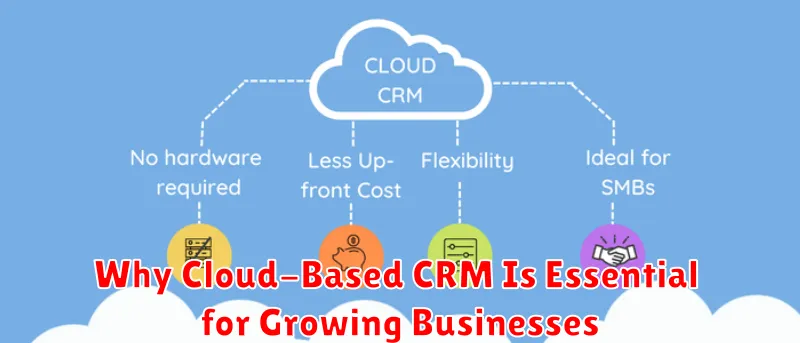In today’s competitive market, growth is paramount for any business striving to succeed. Leveraging the right tools and technologies can be the key differentiator between stagnation and expansion. Cloud-based CRM (Customer Relationship Management) has emerged as an essential solution for businesses aiming to scale efficiently and effectively. By providing a centralized platform for managing customer interactions, sales processes, and marketing campaigns, cloud-based CRM empowers businesses to optimize their operations, enhance customer relationships, and drive sustainable growth.
This article will explore the compelling reasons why cloud-based CRM is no longer a luxury but a necessity for growing businesses. We will delve into the benefits of cloud-based CRM, including enhanced accessibility, scalability, cost-effectiveness, and improved collaboration. Furthermore, we will examine how these advantages translate into tangible business outcomes, such as increased sales productivity, improved customer retention, and data-driven decision-making. Understanding the essential role of cloud-based CRM in facilitating business growth will equip you with the knowledge to make informed decisions about implementing this transformative technology in your organization.
Understanding Cloud-Based CRM
Cloud-based CRM, also known as Software-as-a-Service (SaaS) CRM, refers to customer relationship management software that is hosted on the vendor’s servers and accessed via the internet.
This eliminates the need for businesses to invest in expensive hardware and IT infrastructure. Users can access the CRM system from anywhere with an internet connection, promoting flexibility and remote work capabilities.
Data is stored securely in the cloud, ensuring accessibility and enabling real-time updates and collaboration among team members.
Benefits of Cloud CRM Solutions
Cloud CRM solutions offer numerous advantages for growing businesses. Accessibility is a key benefit, allowing access to data anytime, anywhere, with an internet connection. This fosters improved collaboration amongst teams, regardless of location.
Cost-effectiveness is another significant advantage. Cloud CRM eliminates the need for expensive hardware and IT infrastructure. Scalability is also simplified; businesses can easily adjust their CRM usage as they grow, paying only for what they need.
Finally, cloud CRM solutions often provide enhanced security features, including data encryption and robust access controls, ensuring sensitive customer information remains protected.
Improving Customer Engagement

Cloud-based CRM systems offer powerful tools for enhancing customer engagement. Centralized customer data provides a 360-degree view, enabling personalized interactions. This personalized approach strengthens relationships and fosters loyalty.
Automated marketing campaigns, facilitated by cloud-based CRM, allow businesses to target specific customer segments with tailored messages. This targeted approach increases engagement and drives conversions. Furthermore, integrated communication channels streamline interactions, ensuring prompt and efficient customer service, ultimately improving satisfaction.
Enhanced Data Accessibility
Cloud-based CRM systems offer unparalleled data accessibility, a critical advantage for growing businesses. With data stored securely in the cloud, authorized personnel can access crucial customer information from virtually anywhere, at any time, using various devices like laptops, tablets, or smartphones. This eliminates the limitations of traditional, on-premise systems where access is often restricted to specific locations and devices.
This enhanced accessibility translates to increased productivity and faster response times. Sales teams in the field can instantly access customer histories, order information, and other relevant data, empowering them to make informed decisions and provide better customer service.
Cost-Effectiveness and Scalability
Cloud-based CRM solutions offer significant cost advantages over traditional, on-premise systems. Eliminating the need for expensive hardware, software licenses, and dedicated IT staff drastically reduces upfront investment and ongoing maintenance costs.
Scalability is another key benefit. As your business grows, your CRM needs will evolve. Cloud platforms allow you to easily adjust your user licenses, storage capacity, and functionalities to accommodate this growth, ensuring you only pay for what you need, when you need it.
Integration with Other Business Tools
A key advantage of cloud-based CRM is its ability to integrate with other essential business tools. This streamlined connectivity eliminates data silos and fosters a more unified and efficient workflow.
Integration with marketing automation platforms allows for seamless campaign tracking and lead nurturing. Connecting with e-commerce platforms provides valuable customer purchase history and preferences, enriching CRM data for personalized interactions.
Furthermore, integration with accounting software, project management tools, and communication platforms like email and calendar applications creates a centralized hub for all customer-related information, boosting productivity and collaboration across teams. This 360-degree view of the customer empowers businesses to make informed decisions and deliver exceptional service.
Security and Data Protection
Data security is a critical consideration for any business. Cloud-based CRM systems offer robust security measures to protect sensitive customer information.
These systems typically employ strong encryption, access controls, and regular security audits. This ensures data integrity and confidentiality, mitigating the risks of data breaches and unauthorized access.
Furthermore, reputable cloud providers invest heavily in security infrastructure and comply with industry-standard security regulations, providing an added layer of protection for your valuable data.
Choosing the Right Cloud CRM Provider
Selecting the right cloud CRM provider is a critical decision for your business. Carefully evaluate your specific needs and budget. Consider factors like ease of use, scalability, integration capabilities with existing systems, and the level of customer support offered.
Key features to look for include contact management, sales automation, marketing automation, and reporting and analytics. Research different providers and compare their pricing models, features, and user reviews.
Don’t hesitate to request demos and trials to experience the software firsthand before making a commitment. A well-chosen cloud CRM can significantly benefit your business, so invest the time necessary to make an informed decision.
Common Mistakes to Avoid
Implementing a cloud-based CRM can be transformative, but some common pitfalls can hinder success. One critical mistake is insufficient planning. Clearly define your business needs and objectives before selecting a CRM.
Another frequent error is inadequate training. Ensure all users understand the system’s functionality and how it integrates with existing workflows.
Finally, neglecting data migration and cleansing can lead to inaccurate reporting and ineffective analysis. Prioritize data quality from the outset.
Measuring CRM Success

Measuring the success of your CRM implementation is crucial. It’s not just about adoption rates, but about demonstrable improvements to your business. Focus on key performance indicators (KPIs) that align with your overall business objectives.
Common KPIs include conversion rates, sales cycle length, customer retention rate, and customer lifetime value. Track these metrics before and after CRM implementation to quantify the impact.
Regularly analyze your data to identify areas for improvement and refine your CRM strategy. This data-driven approach ensures your CRM system continues to deliver value and contribute to your business growth.

